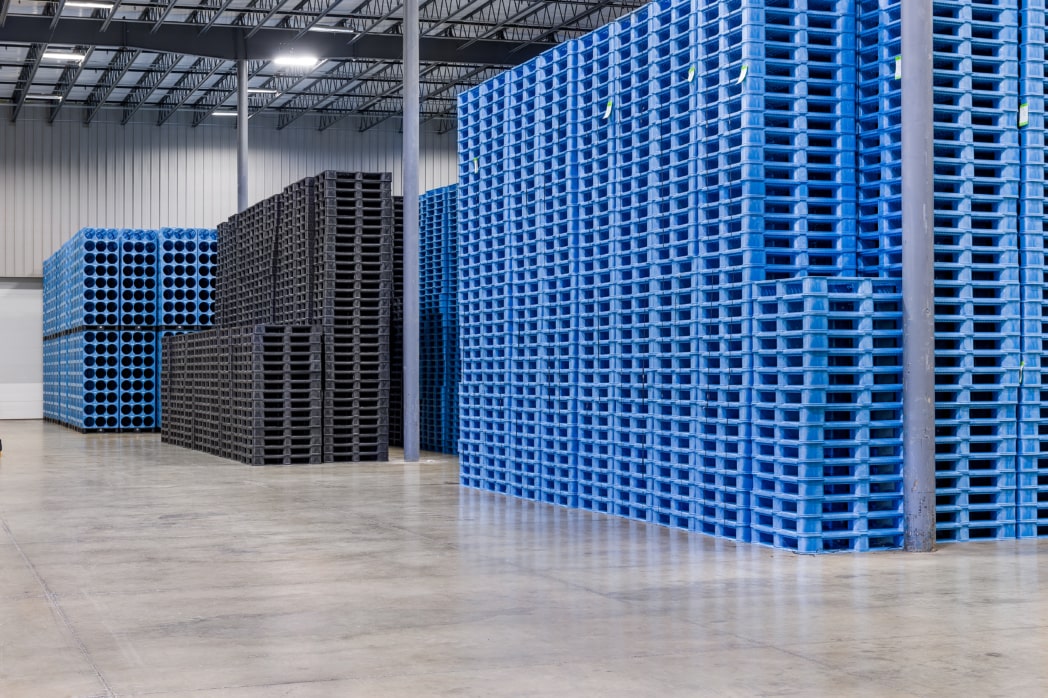Choosing the right type of pallet for a warehouse or shipping business is an important process that managers often neglect. If you’re involved in the shipping of your products, especially if it’s international shipping, you’ll want to pay careful attention to the type of pallets you use.
While conventional wood pallets are falling out of favor, many managers are faced with a choice between using plastic pallets or heat-treated wooden pallets. What are heat-treated pallets, and are there clear benefits of using heat-treated wood pallets vs. plastic?
What Is a Heat-Treated Pallet?
The term “heat-treated pallet” refers to a specific type of treatment in which a wooden pallet is heated to a core temperature of 140 degrees for at least 30 minutes. Properly heat-treated wood pallets come with a stamp to let users know it has received this treatment. (ISPM-15)
Why Heat Treat a Wooden Pallet?
Heat treatment is required for international shipping of wooden pallets by the World Trade Organization and International Standards for Phyto-Sanitary Measures No. 15. This requirement exists because wood, as a natural material, is appealing to all manner of insects and other tiny pests. The likelihood of shipping a foreign life form into an unfamiliar ecosystem via an untreated wooden pallet is very high.
To avoid this issue, the International Plant Protection Convention put forth the heat treatment process, which serves to kill off any insects or insect larvae that may be buried in the wood.
Browse Our Plastic Pallet Selection
Heat-Treated Wooden Pallet vs. Plastic
So if heat-treated wooden pallets serve to get rid of insects, are they equal or superior to plastic pallets for international shipping? In fact, plastic pallets have many advantages over even heat-treated wood pallets.
For one, if you ship internationally with plastic pallets, you never have to worry about whether your pallets are heat treated or not. Plastic provides no nourishment or nesting ground for insects, so they’re never an issue.
Furthermore, just because a wood pallet is heat-treated does not mean that it cannot be vulnerable to contamination later in its life. In particular, if wood pallets get wet, as they will if you attempt to clean them, they’ll retain moisture and potentially attract mold, mildew or other contaminants.
Additionally, pests are not the only potential contaminants in wood pallets. Wood pallets need nails or screws to fasten them together. These metal items can easily come loose and damage your shipped items or lodge themselves in food products, where they can create a health hazard.
Contact Polymer Solutions International for More Information on Plastic Pallets
Rather than going through the time and effort of securing heat-treated wood pallets, choose hygienic plastic pallets from Polymer Solutions International. These pallets are affordable and more cost-effective than wooden pallets because you can reuse them over and over again. They’re hygienic, easy to clean and ideal for transporting your goods either within the country or internationally.
To learn more about PSI plastic material handling products and how they can benefit your company, contact us today.



